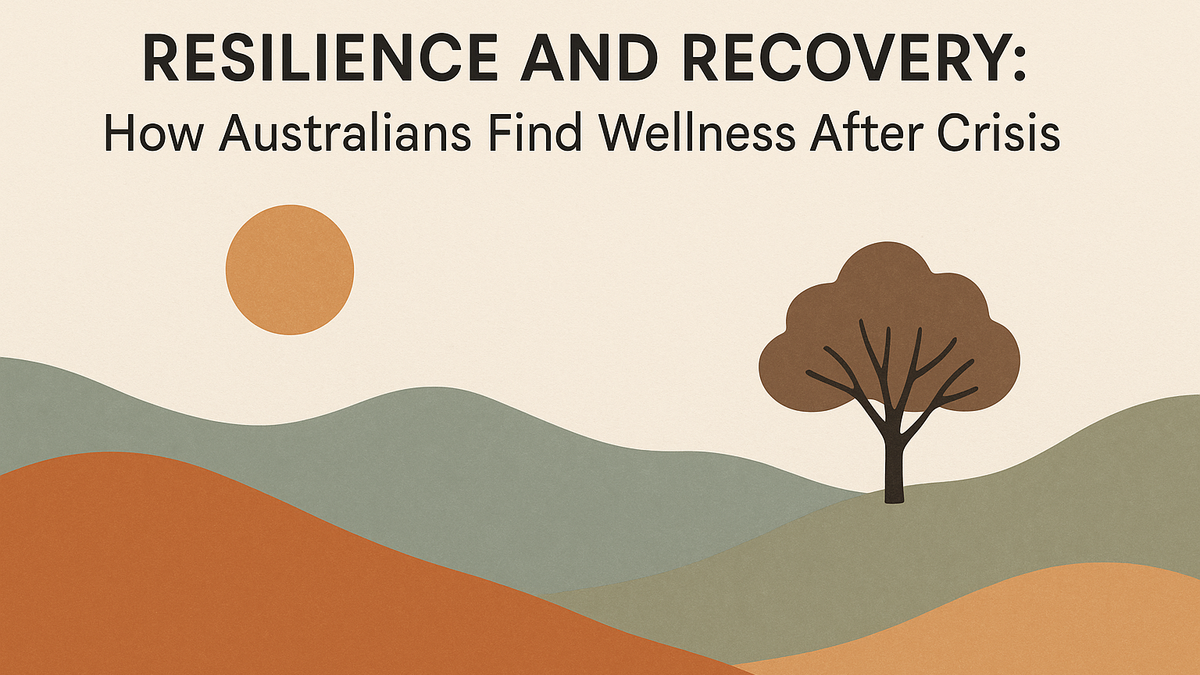
Let's get real—getting back on track after life floors you with a curveball isn't as easy as dusting yourself off and continuing on. It's a personal struggle, a rough financial landscape, or the heartbreak that follows natural disasters, and well-being is the first thing to get left behind. But those small, daily habits of keeping your mind and body in line? They're the adhesive that holds it together when everything else seems to be crumbling.
It's not bubble baths and green smoothies (though we're not judging those either). It's creating real, sustainable habits of wellness that allow you to rebuild from the ground up—regardless of whether everything else is still a bit wonky.
The Place of Restoration in Wellness
There is something silently powerful about starting over. Before you embark on new beginnings and high-falutin' schemes, though, recovery needs space. Emotional recovery especially doesn't do well with deadlines.
No matter what your experience was, whether a personal trauma, or a more generalised event like bushfires or flooding, restoration is complex. It's about giving yourself permission to rest, process, and heal in tiny increments.
Here is how you can contribute:
- Routine, not rigidity: Soft structure such as regular meals and sleep can help regain a sense of control.
- Purposeful movement: A short daily walk, a bit of yoga, or even morning stretching resets the nervous system.
- Connection: Talking to someone you trust, even briefly, helps release what’s bottled up.
Healing and Community in Relationship
We are wired to connect—especially when life gets in the way. Across Australia, Australians have turned to each other in difficult times, building support networks out of coffee shop chatter and compassion.
It is a gradual process following natural disasters to rebuild. But community action in the guise of Australian disaster relief can be used to help provide more than sustenance and shelter. It reminds people that they are not alone. That they matter.
There’s wellness in that sense of shared humanity. It looks like strangers checking in on neighbours. It sounds like laughter in community halls turned into pop-up recovery centres. And it feels like hope—slow, steady, and fiercely determined.
Daily Wellness Habits to Take Back Balance
If the idea of a complete wellness ritual feels overwhelming, fine. Let's scale it back. Micro-habits, anyone? Small shifts that slowly nudge you back towards yourself.
Start here:
- Early morning sun: Simply getting outside for ten minutes during the morning sun can enhance your mood and sleep.
- One filling meal: Concentrate on one meal a day that gives your body what it needs.
- Breath check-ins: Inhaling and exhaling slowly a few times before task shifts can calm you down and re-set your mind.
They don't call for the complete reorganisation of one's life. They're practical, replicable, and grounded in self-respect.
The Power of a Change of Scenery
Other times, you require more than a mental reboot. Sometimes, you just need a change of scenery—no matter how minor. Imagine a spot where time stands still, where Mother Nature does half the work in healing you.
Noosa holiday apartments, between sparkling beaches and verdant national parks, provide that kind of refuge. They're not just an escape; they're an opportunity to breathe, sleep, and be rocked by nature. Even a weekender at the beach can remind your stressed system that it's alright to unwind.
When Self-Care Isn't Optional
Self-care is tagged as voluntary, something which people with spare time have the luxury of indulging in. The truth? It's upkeep. Like brushing your teeth or charging your phone, it's how you remain going when life begins throwing its weight around.
Practice these:
- Establish limits online: It is not necessary to reply to every message instantly. Your time is valuable.
- Say no guilt-free: You don't need to do everything. Save it for what does actually drain you.
- Create your 'quiet corner': A safe haven space in your home for even two minutes of peace.
These are less about doing more and more about holding what matters.
Respecting Where You've Been
There is power in owning the mess. Wellness never demands perfection or that you pretend to be okay. It only requires that you be truthful about where you are and kind about where you are headed.
And if it's something that's utterly turned your world upside down, such as a flood or fire, the impact doesn't stop at the newspaper headlines. Trauma stays in the body. Healing is slow. That's why disaster relief in Australia is so important—providing not only supplies, but human care afterwards.
Wellness here does not seem to come in the guise of spa therapy. It comes in the guise of a hot shower, a roof overhead, a laugh. And maybe a walk. Maybe a chat. Maybe hope.
Keep It Gentle
Getting your health back after it's been disrupted is less about getting it "right" and more about doing what you can. It isn't always tidy. Sometimes it's messy, slow, and unclear. But you're not behind. You're not broken. You're creating something new, one still moment at a time.
In order to clear space for those moments, learn to make mental health a priority in simple, sustainable ways.
Begin small. Respect your speed. And remember that each step, no matter how unsteady, matters.